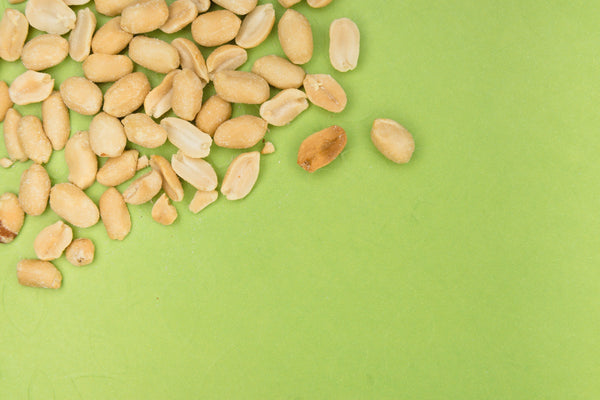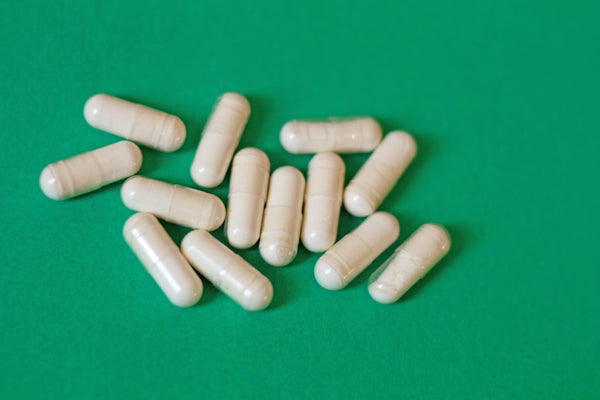Do Kids Need Fiber Gummies? The Pros & Cons of Gummy Fiber Supplements
share this article
 Fiber is essential for healthy digestion, regular bowel movements, and gut health, but many kids don’t get enough fiber from their diets. Fiber gummies have become a popular solution for parents looking to boost their child’s fiber intake in a convenient and tasty way.
Fiber is essential for healthy digestion, regular bowel movements, and gut health, but many kids don’t get enough fiber from their diets. Fiber gummies have become a popular solution for parents looking to boost their child’s fiber intake in a convenient and tasty way.
But do kids actually need fiber gummies? And are they as effective as natural fiber from food? Let’s break down the pros and cons of gummy fiber supplements for kids.
How Much Fiber Do Kids Need?
The recommended daily fiber intake for kids varies by age:
-
1–3 years: 14g per day
-
4–8 years: 17–20g per day
-
9–13 years: 22–25g per day
The problem? Most kids don’t meet their daily fiber needs, especially if they eat low-fiber, processed foods like white bread, crackers, and sugary cereals.
This is why parents often consider fiber gummies as an easy way to fill the gap.
Pros of Fiber Gummies for Kids
Convenient
Gummy fiber supplements are kid-friendly and can be an easy way to increase fiber intake without meal battles.
Helps with Occasional Constipation
Fiber helps soften stools and promote regularity. If your child struggles with infrequent or hard stools, fiber gummies may help get things moving.
Supports Gut Health
Some fiber gummies contain prebiotic fiber (like inulin or chicory root), which helps feed good gut bacteria and supports a healthy microbiome.
Better Than Laxatives for Mild Constipation
Unlike stimulant laxatives, fiber gummies work naturally by adding bulk and water to stools, making them a gentler solution for occasional constipation.
Cons of Fiber Gummies for Kids
Added Sugars & Artificial Ingredients
Many fiber gummies contain added sugars, artificial colors, or sugar alcohols (like sorbitol or maltitol), which can cause bloating and digestive discomfort.
Begin Health Tip: Powder fiber formats such as Begin Health's Growing Up Prebiotics can help kids get more fiber without any added sugars.
May Cause Gas & Bloating
If introduced too quickly, fiber gummies can cause bloating, gas, and stomach discomfort.
Tip: Start with half a dose and increase gradually while ensuring your kiddo drinks plenty of water.
Not a Substitute for Whole Foods
Fiber from whole foods like fruits, vegetables, and whole grains comes with additional vitamins, minerals, and hydration that fiber gummies lack.
Begin Health Expert Tip: Gummies should not be a replacement for high-fiber foods.
Not Effective for All Kids
Fiber gummies help add bulk to stools, but if your kiddo has gut imbalances, food intolerances, or chronic constipation, fiber alone may not solve the issue. Prebiotics and probiotics may be a better solution.
Do Kids Actually Need Fiber Gummies?
-
If your kid eats a high-fiber diet, fiber gummies aren’t necessary.
-
If your kid struggles with constipation, fiber gummies can help but should be paired with plenty of water.
-
If your kid is a picky eater who avoids fiber-rich foods, gummies may help bridge the gap - but focus on adding fiber-rich whole foods first.
Best Natural Fiber Sources for Kids
Instead of relying on fiber gummies, try adding these fiber-rich whole foods to your child’s diet:
-
Avocados – 5g per half an avocado
-
Berries – 3–4g per cup (strawberries, raspberries, blueberries)
-
Apples (with skin) – 4g per small apple
-
Carrots – 3g per cup
-
Beans & Lentils – 5–7g per ½ cup
Begin Health Expert Tip: If your kiddos resist high-fiber foods, blend them into smoothies, soups, or baked goods.
Summary
If your kid isn’t getting enough fiber, focus on whole foods first, and consider fiber gummies as a supplement, not a solution. If constipation is a frequent issue, prebiotics (like Growing Up Prebiotics) may be a better long-term solution to support gut health.



















